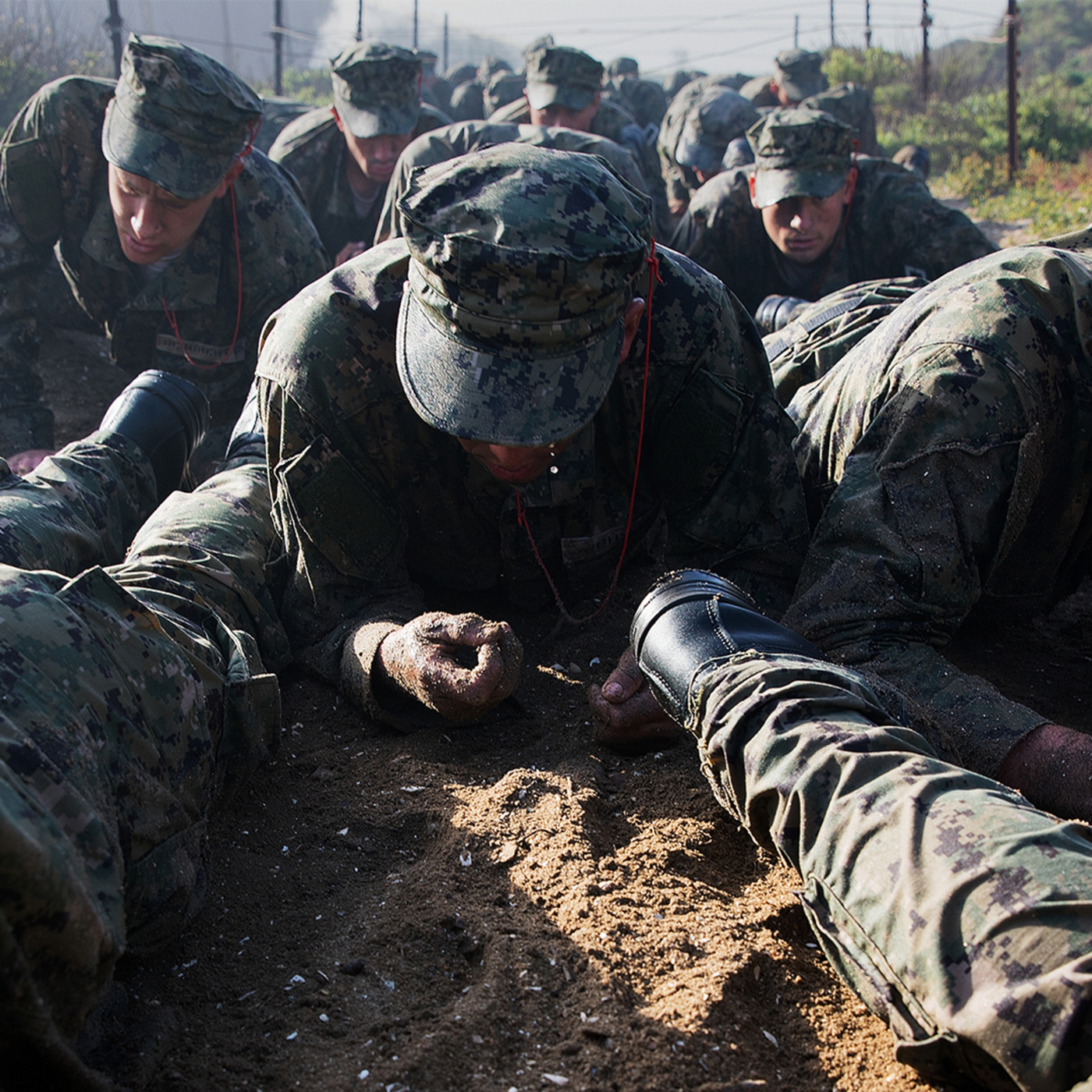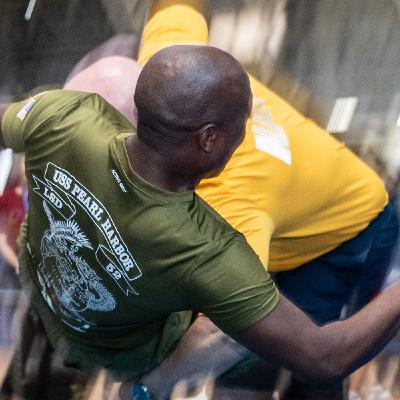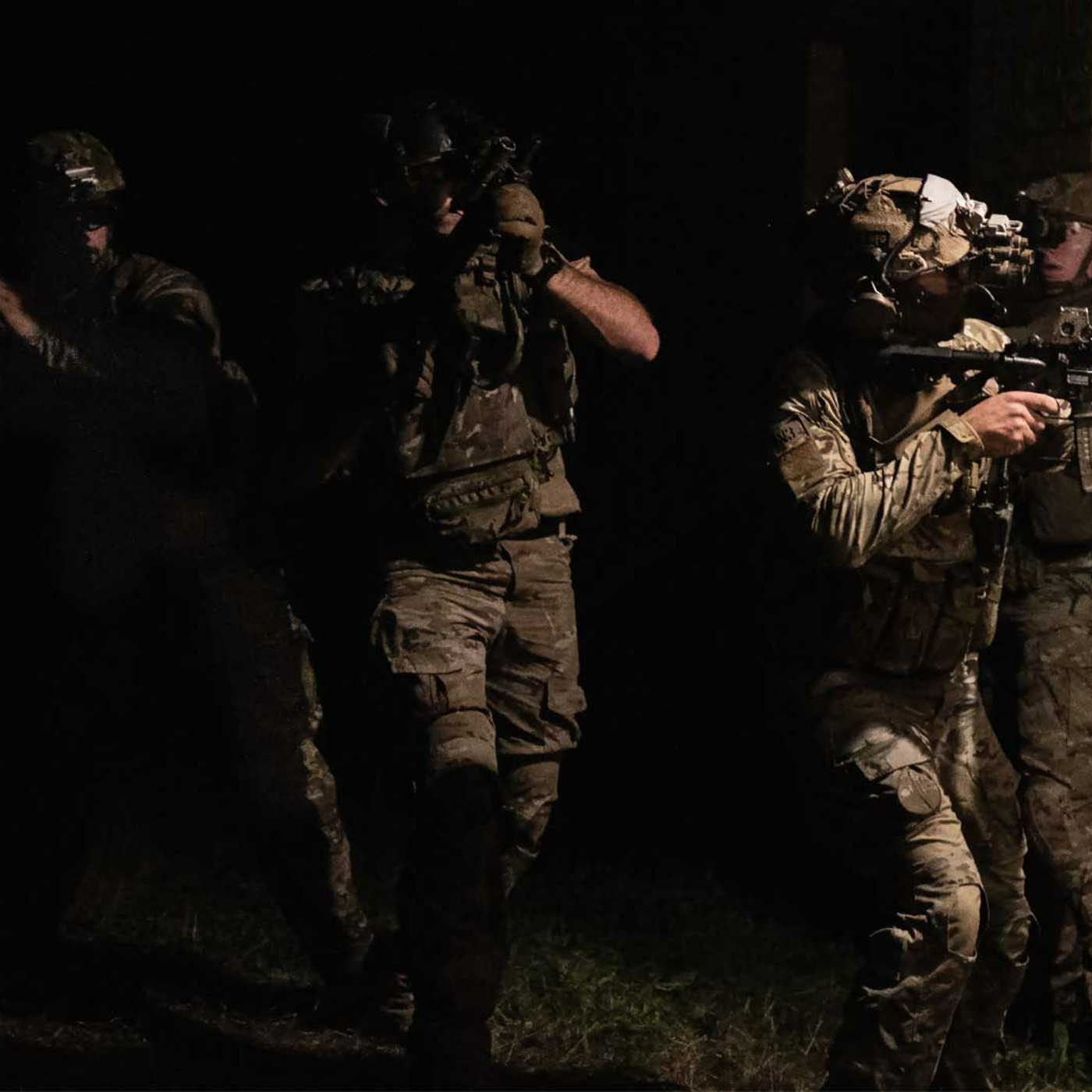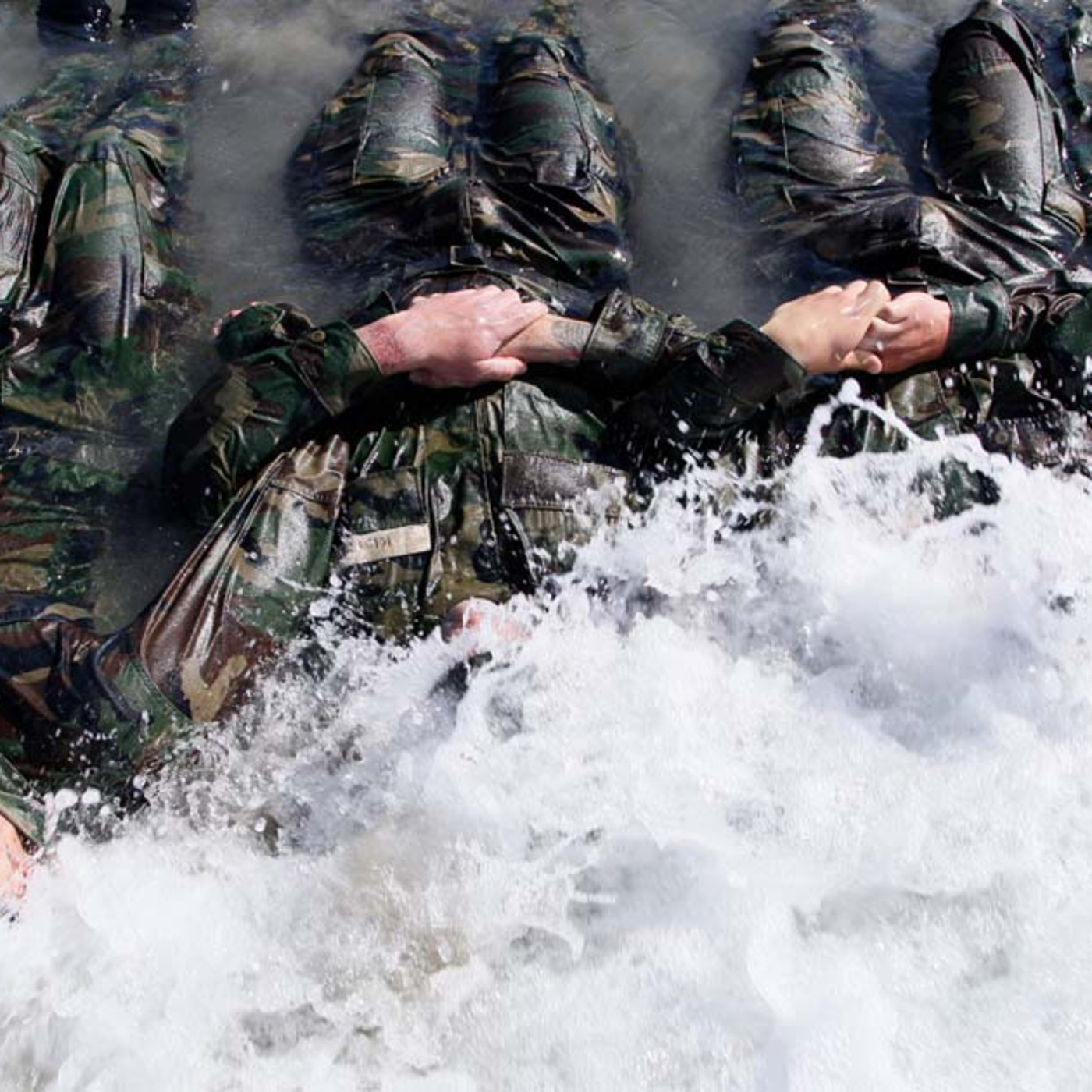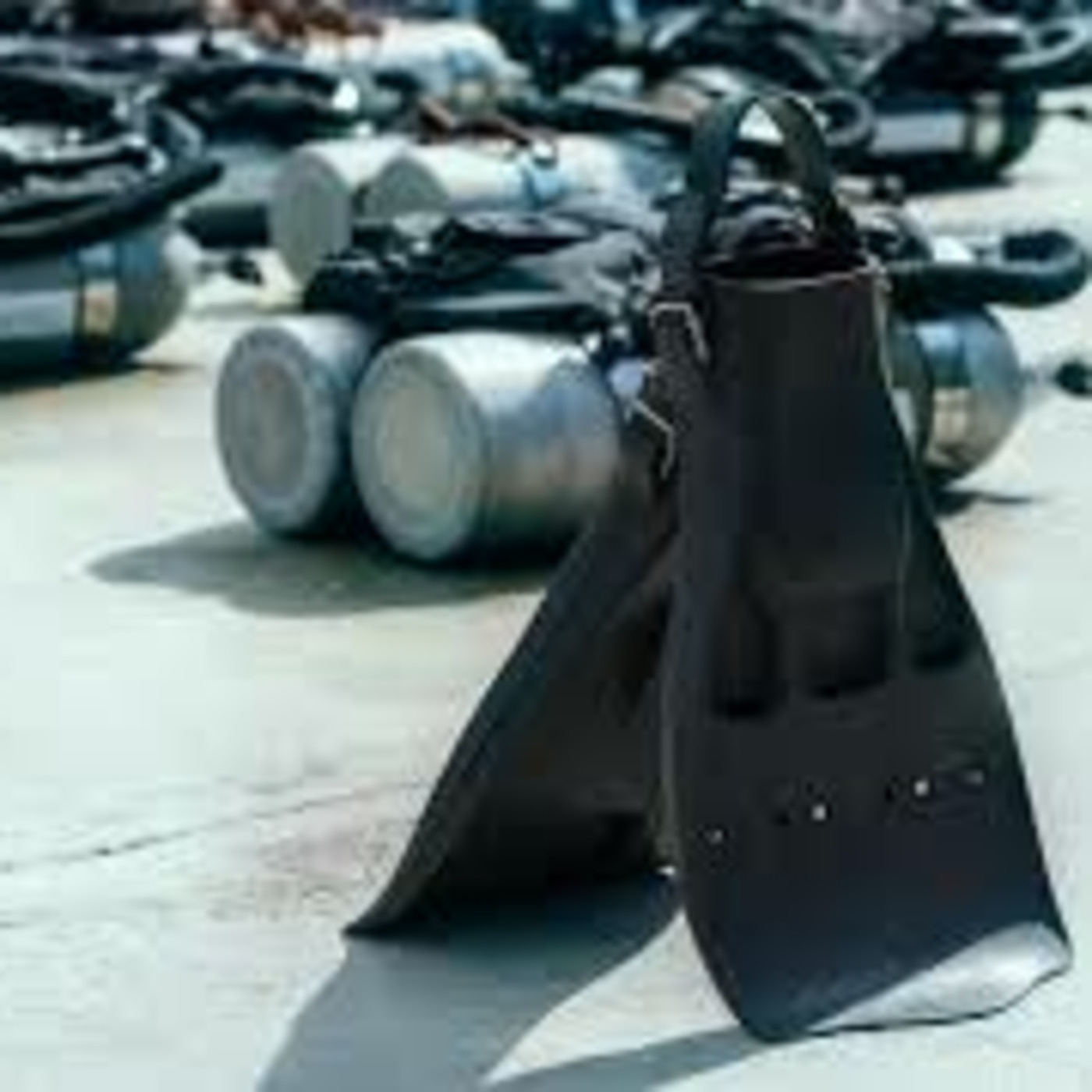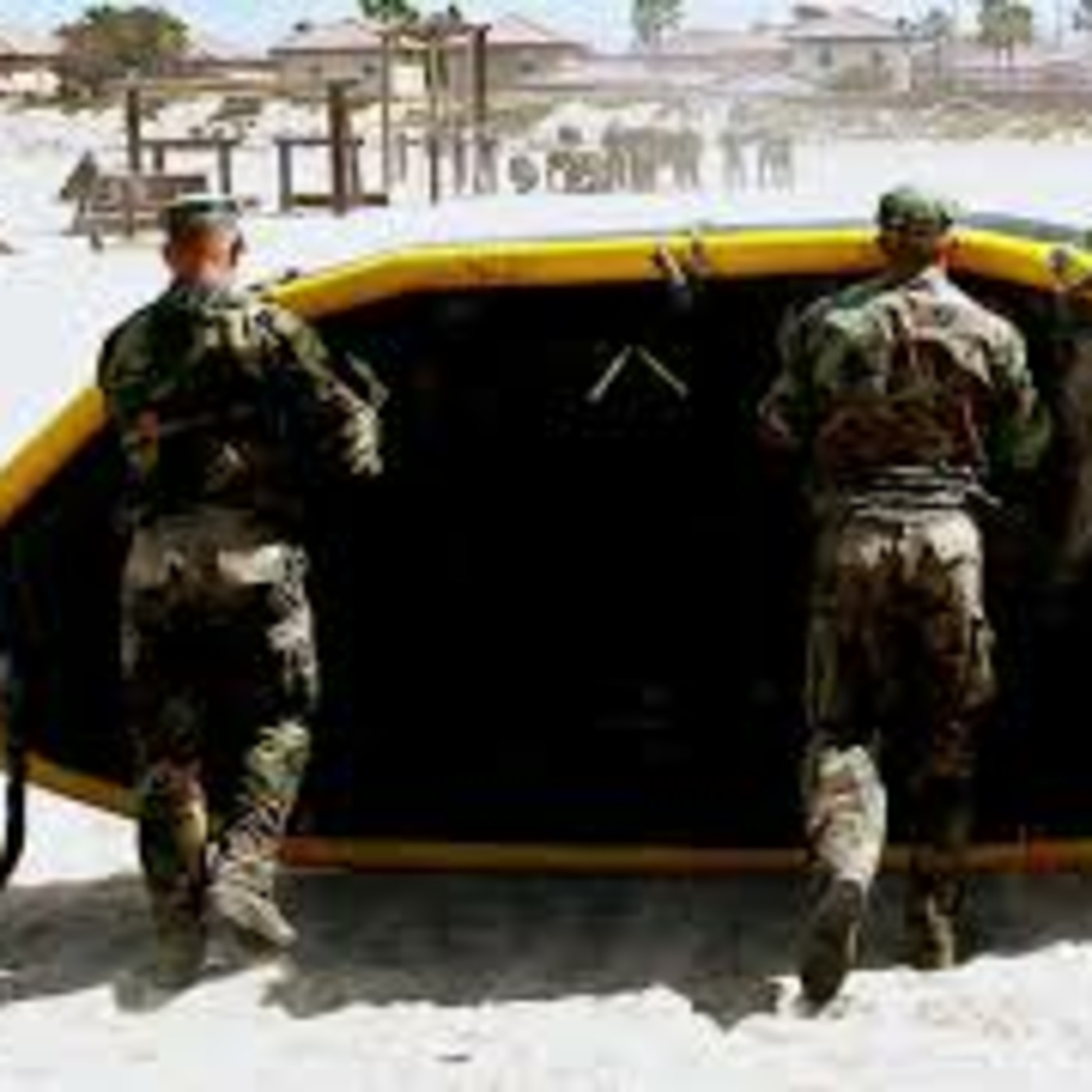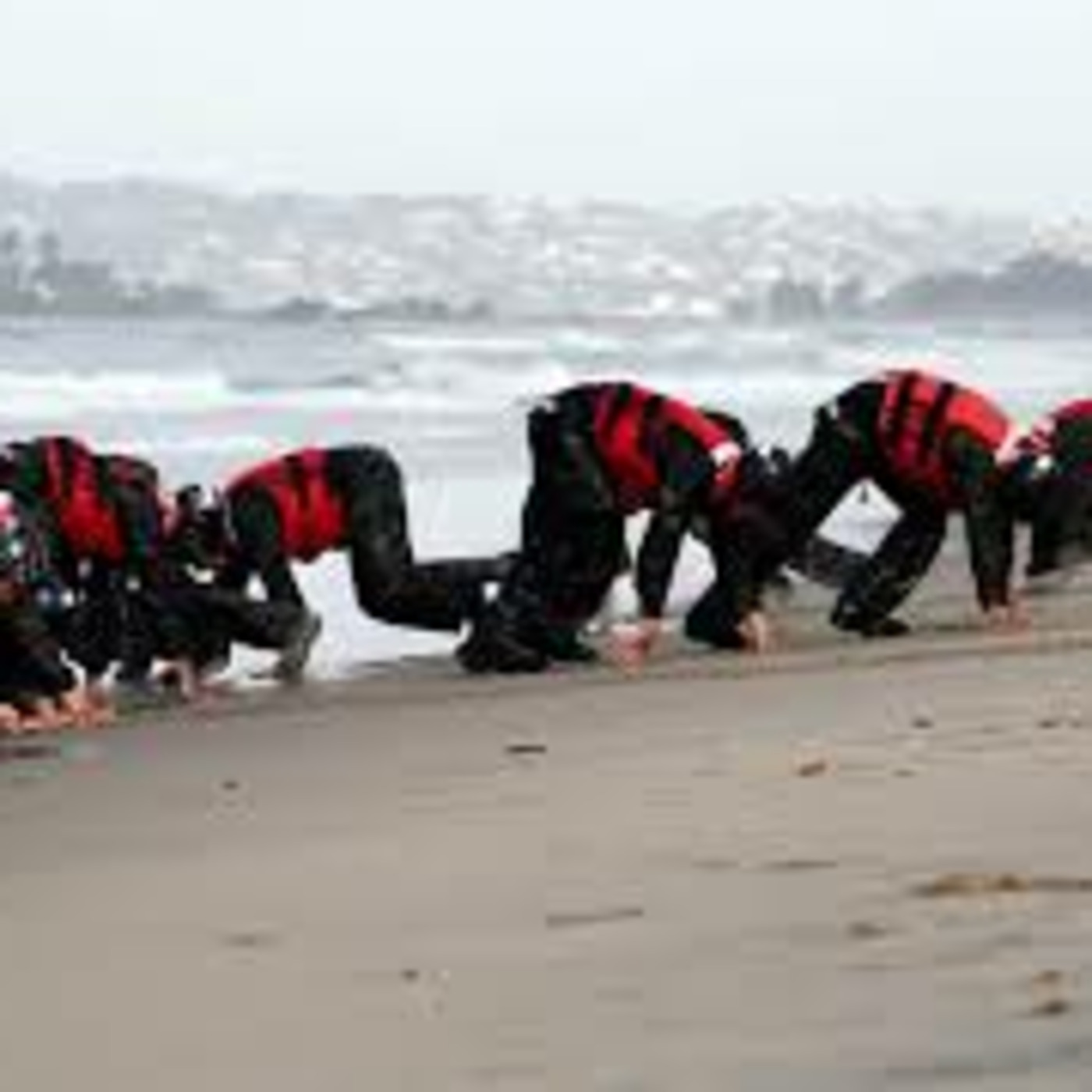Episode 44: PODCAST: Episode 44 | How to Prepare for SOAS | SEALSWCC.COM
Description
You can’t fake it to make it. We tell you how to navigate the application process and what you need on your resume.
Scott Williams:
Hello, everyone. Welcome to another episode of the Only Easy Day Was Yesterday. I'm your host, Scott Williams, and today we have Andrew Dow with us to discuss the topic of SOAS. This is Part 2 in our series. In the first part, we talked about what SOAS is, and Andrew explained that pretty well to us. Now we're going to talk about how to prepare for SOAS, and this is the SEAL Officer Assessment and Selection process. So, Andrew, welcome. Let's get right into it. Let's talk about the application process itself. How do I apply if I want to be a SEAL officer? How do I apply for SOAS? What are some of the dates and things that have to be done and prerequisites? Just talk to us about that.
Andrew Dow:
The SOAS application is very straightforward; all of it can be found on the SEAL OCM web page, and you can get to the SEAL OCM web page through SEALSWCC.COM. There are different application processes for different accession sources, so I'll first address the OCS, Officer Candidate School, or the civilians who want to become SEAL Officers.
So, the SOAS application – before we even start anything, to be an officer in the military, an officer in the Navy, every candidate has to have their four-year degree. They have to have their bachelor's degree; whether you have your degree already or if you're just about to apply, you should start the summer prior to the application due date. Applications happen once a year. They're due to the SEAL OCM at the end of February, and every year it's the same. They are due to the SEAL OCM end of February. So, if you're an OCS applicant, you should start this application in the summer. So, in July or August, you go to an Officer Recruiter, start the OCS application, and work on the SOAS application.
If you're NROTC and haven't let your chain of command know early, you start during the summer of your rising junior year. You start the SOAS application, and no matter what, the applications are due to the SEAL OCM end of February.
Once the application for any accession source is submitted, the SEAL OCM – Officer Community Manager – conducts a ‘down-select’. This down-select determines if you'll receive an invitation to SOAS or not. This happens usually at the end of March or early April, and then from there, they'll have the list of who will be attending SOAS, and you'll be notified in early April or the middle of April if you've been invited to SOAS. After you've received your invitation, you'll attend SOAS, whether it's in June, July, or August. After you complete SOAS, there's a SEAL selection panel that happens every September, where the Naval Special Warfare senior leader will sit down with a bunch of community officers and determine who will be selected to go to BUD/S. This happens in September. Candidates will be notified if they're going to BUD/S, usually in October, and then from there it's...if you're a ROTC midshipman, that October is your senior year, so you'll finish your year, you'll graduate, you'll get commissioned then you'll go to BUD/S. For OCS, you will usually attend OCS a month after receiving the selection, so you'll probably attend OCS sometime between November and April, and then you'll go to BUD/S late spring to early summer.
So, the SOAS application is...there are different accession sources for SOAS to become SEAL officers. I'm strictly going to talk first about the Officer Candidate School, the OCS candidate – the civilians who want to become SEAL Officers. Before they can even apply and become, start the SOAS application, they have to have their four-year degree, and that goes for any aspiring officer in the military. Whether you're going to become a Naval Officer or an Army Officer, you have to have your four-year degree.
So, the first step they have to do is they go down to their Officer Recruiter at any Navy Naval Station in their hometown or whatever is local to them, and they go in and talk to our Officer Recruiter and say, “I want to be a SEAL Officer through the OCS pipeline.” The Officer Recruiter will then start their application process, but concurrently and independently, they have to do their SOAS application and their SEAL Officer assessment application. This application can be found on the SEAL OCM web page. If anyone has issues getting to that web page because they have just changed the format of it, it can be very confusing to navigate. They can reach out to me. I will provide my contact information to Scott so if anyone has questions on how to get there.
Scott Williams
Yeah, just shoot us an email at info@sealswcc.com, and we'll get that question answered.
Andrew Dow
Or they could go to the SEALSWCC.COM website, and there's a link to get to the SEAL OCM web page with the SOAS application.
Scott Williams
What does OCM stand for?
Andrew Dow
Officer Community Manager. The SEAL Officer Community Manager is the one who receives all the SOAS applications.
So, an OCS candidate talks to their Officer Recruiter, and at the same time, they can utilize me, and I will help them with their SOAS application. So, the SOAS application for an OCS candidate starts with them going to their Officer Recruiter, the Officer Recruiter will handle different components of that application, but concurrently and independently, they're going to do their SOAS application. The SOAS application for an OCS candidate requires that they have a four-year degree, they have to have a PST score and a physical screening test score that can be done by their Officer Recruiter, who can proctor it. They have to have a resume. The resume is basically a brag sheet about the individual and what they have done prior to applying to SOAS, and this could be a wide range of things their leadership experience, their athletic background, their GPA, what majors they studied, do they speak any languages, this is the time that they get to brag about themselves, check your modesty at the door. You want to basically tell on this resume everything great about yourself.
Scott Williams
And is that the kind of stuff that NSW is looking for?
Andrew Dow
Yes, during the SOAS application, we want to see – because they're looking for individuals with athletic backgrounds – the ones with strong GPAs or are bilingual, or have leadership experience in the real world that they will be able to utilize in the SEAL community. So, one of the components of the SOAS application is that resume, so that's like I said, is your brag sheet.
After you have the resume, you need your letter of references, usually get two of those, and it's given to someone who knows you and who can write about talk about you, your leadership, your character, what you have done in life up to this point and for them to basically talk about it. In the past, I've told candidates, some good people to write a letter of reference for, you know, high school coaches, high school teachers, college teachers, college coaches, and some of your mentors that you know that you've looked up to in the past.
Scott Williams
So, it doesn't have to be, you know, your local senator, for instance, as it would be if you're applying to the Naval Academy and yet you're getting a senator to write a letter recommendation or some Admiral somewhere it really has more to do with how well does that person know you so that they can evaluate you as someone that is well known versus….
Andrew Dow
The whole point of letter references is not about the signature at the bottom. It's about the individual, the candidate. The person writing these LORs should know this person and be able to write good things about them, and just like you said, you're not looking for a senator; hey, if you know a senator and he knows you since you were born by all means, utilize that individual. Or if you know a four-star Admiral or a four-star general who knows you and your family by first name, yeah, you can utilize those, but if you're just in passing and you see this four-star who you had the chance to say hello and then you ask can you write a letter of reference for me, that's probably not a good idea because the selection penalty sees these all the time. And it's frowned upon because they don't know you. You want to find someone who knows you. That's the most important thing for these letters of reference.
Along with the LORs, you have the OCD, which is the Officer Candidate Data card. It's basically a snapshot of the individual. The Officer Community manager can provide this to you, and it's basically just filling in all the important highlights of your resume, your GPA, your leadership background, and your athletic background. Also included is a headshot of the candidate. So, each candidate is also going to be required to provide a headshot in business casual. Don't be taking a picture in board shorts, and T-shirt, and flip-flops. Look professional, because this is an interview.
Scott Williams
So, it's kind of like a baseball card, in a way?
Andrew Dow
Right, right.
Scott Williams
It has your personal stats...
Andrew Dow
Yes, exactly
Scott Williams
...what you look like and your major accomplishments.
Andrew Dow
Yeah, height and weight. It's going to say, the four-year degree you got, if you have a master's degree, it will say that. It will


